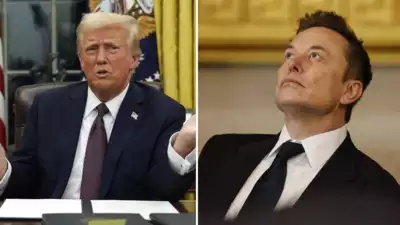
Donald Trump and Elon Musk
Minutes after assuming office, former President Donald Trump faced a lawsuit filed by the American Federation of Government Employees (AFGE), the largest union representing US federal workers, and the nonprofit Public Citizen.
The suit challenged Trump’s plan to establish the "
Department of Government Efficiency
" (DOGE), a cost-cutting initiative aimed at streamlining federal operations.
The department, assigned to Tesla CEO Elon Musk and initially Republican leader Vivek Ramaswamy, has drawn criticism for its potential impact on federal employees and public services.
However, on the day of inauguration, Indian-American politician Vivek Ramaswamy announced that he will not be the part of newly-established DOGE, as he has plans to run for Ohio governor.
The AFGE alleges DOGE violates the federal advisory committee act (FACA), which mandates transparency, diverse representation, and public access to records. According to the complaint, DOGE’s structure and operations fail to reflect these requirements, raising concerns about accountability and the potential influence of private interests.
"DOGE — whose members do not represent everyday Americans — will be recommending cuts to agencies and programs that protect health, benefits, consumer finance, and product safety," the lawsuit stated. It urges the court to halt DOGE’s activities until compliance with federal regulations is ensured.
DOGE, headquartered in SpaceX’s Washington, DC, offices, has assembled a Silicon Valley-heavy roster and reportedly relies on encrypted apps like Signal for internal communication. Critics argue that its lack of transparency underscores the need for greater oversight.
Musk, tasked with identifying up to $2 trillion in federal spending cuts, claims the initiative could deliver substantial savings. However, experts caution that achieving such reductions would likely require deep cuts to social programs.
The AFGE lawsuit is one of several filed by watchdog groups, which argue DOGE prioritizes private interests over public welfare. Critics also highlight the risks of placing significant authority in the hands of private-sector leaders without adequate safeguards.
Trump and Musk have yet to respond to the legal challenges.

 1 day ago
3
1 day ago
3










 English (US) ·
English (US) ·